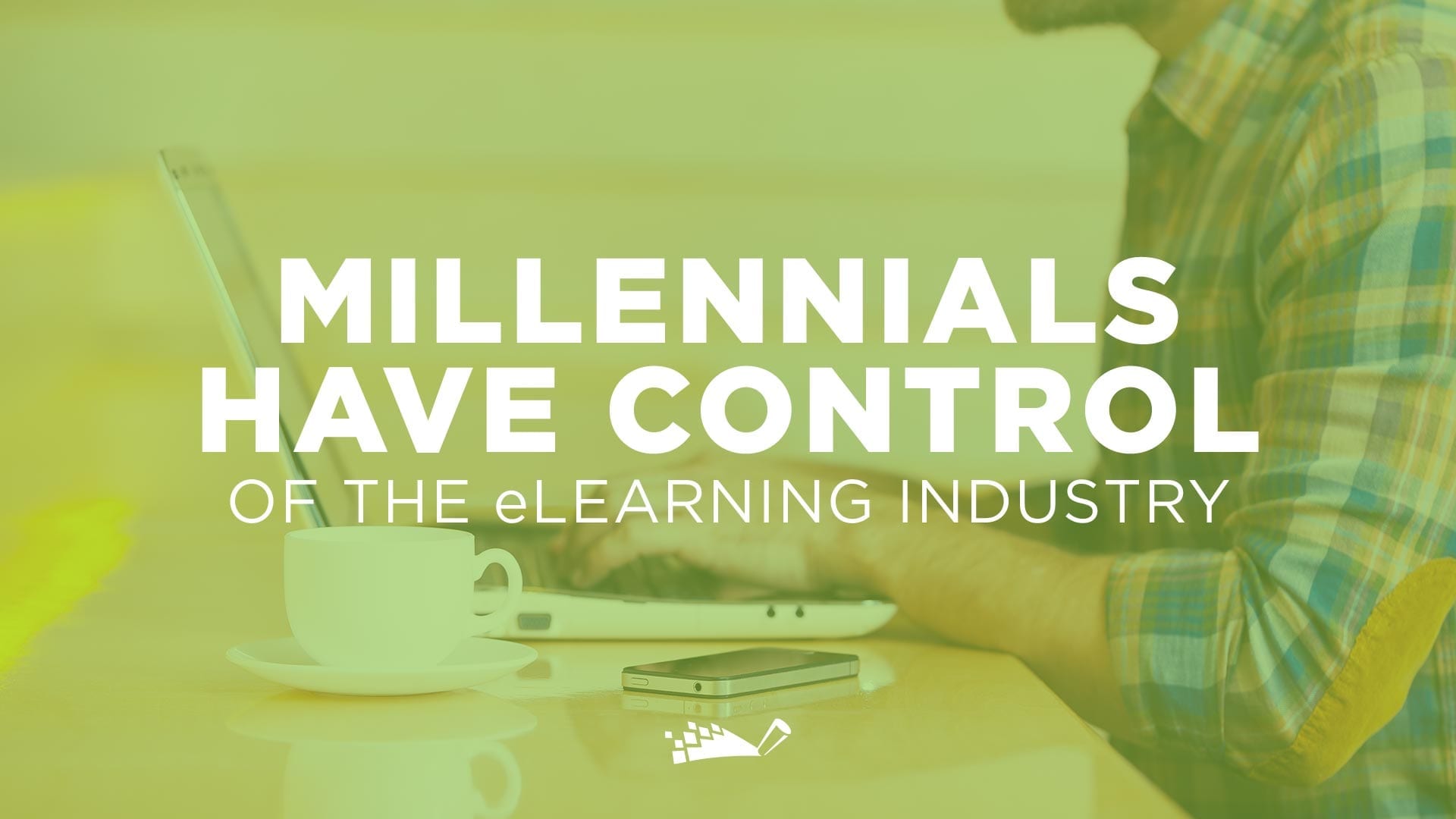
Elearning companies have learned the hard way that flashy graphics and digital effects don’t make up for substandard content. An online course must be relevant. Millennials have gained a stronghold on the industry because of their very nature and lifestyle. Here are five reasons they’ve taken control of this large and growing industry and what it means for elearning in general.
1. Quickly becoming dominant in the workforce
In just a few years, Millennials will account for over 50 million people in the workforce. They are already proving to be ambitious, seeking out certificates and education beyond their schooling in large numbers. A desire to explore, learn, and develop skills is giving people in this age group an edge over other candidates. The need to interact and engage is presenting a challenge for elearning course developers as well.
2. Extremely tech-savvy
An elearning company has no chance if it doesn’t embrace technology and utilize that technology to produce custom e-learning solutions. Millennials have taken control through their tech-savviness. They crave social media and interaction and nearly all have a mobile smartphone or tablet computer. This has changed the way they learn. Long lectures are boring. The new norm is access to training available anytime, anyplace they go, in order to avoid a rigid schedule.
3. More career mobile
Millennials change jobs more frequently than Baby Boomers. An estimated six in 10 change jobs or careers in under three years, while most move up the career ladder much faster than previous generations. This means they must gain marketable skills and build their talents faster. Their career advancement is dependent upon that and these individuals will go all lengths to research the right online courses. Your training curricula must address these diversified training needs or Generation Y’ers will quickly look to your competition.
4. Desire for lifelong learning
Despite strongly disliking regimented class schedules, Millennials want to learn. Education doesn’t end with the school year or the end of high school or college. The interaction and exploration of elearning courses stimulates them. These classes provide the typical Millennial with the instant gratification of attaining a workplace skill for the next stage of their career, and as such can also be considered a viable employee engagement idea. All of your content must be meaningful and relevant, and it should also be easily digestible. Otherwise word will spread and news of your inability to meet their needs will go viral.
5. Always connected
Consuming content 18 hours a day, Millennials are nearly always engaged and social. They have an always-on mentality. An ability to access training 24/7, therefore, is essential, and they must be able to access your program on any device. The BYOD culture has created a fundamental demand to make elearning courses accessible on every popular mobile platform. Digital content is much more important than lectures or books. This has put pressure on elearning organizations to package courses that cater to the Millennial learning style.
Despite inheriting the hard-working culture of prior generations, Millennials have reshaped how technology is used and the way learning and working take place. Their sheer numbers have forced elearning businesses and employers to change the way they operate. Millennials have indeed taken control of the elearning industry, and the five reasons mentioned here demonstrate why your course development and design needs to reflect their needs.
Written by: Brigg Patten
Brigg Patten writes in the business and tech spaces. He’s a fan of podcasts, bokeh and smooth jazz. His time is mostly spent learning the piano and watching his Golden Retriever Julian chase a stick.
